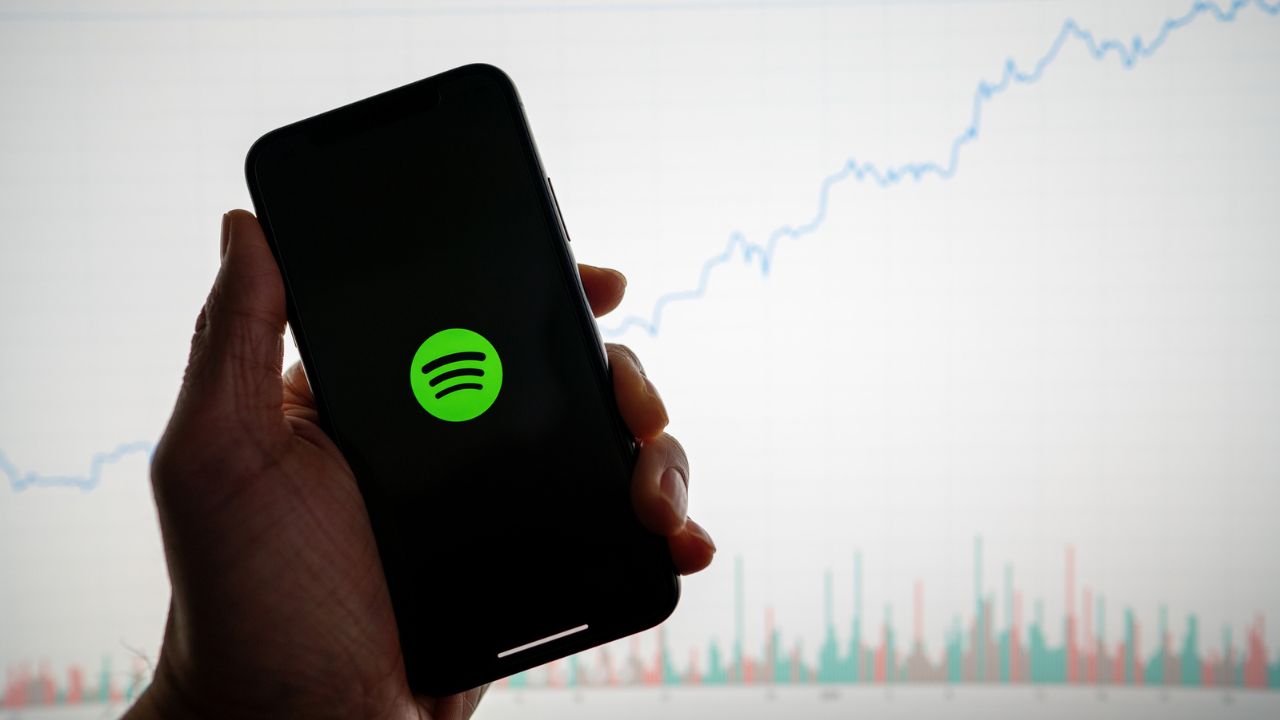In a historical moment in which Spotify leaves the crumbs to the artistsand Meta struggled to find an agreement with SIAE, we missed it just artificial intelligence (AI) that creates totally random music and listens to it alone, distorting the streams.
Artificial intelligence or artificial streaming?
Spotify works more or less like this: the platform manages a cash register (proceeds from advertising and Premium subscriptions). This fund is divided among the artists, obviously paying more who plays more. How much? It is enough for you to know that Tony Visconti, David Bowie’s longtime bassist and producer, said that “if you had 12 million streams, you could barely afford dinner for two”. In fact Spotify, for single stream, pays an amount between €0.002 and €0.0062.
Might as well grab a hat and go out and play in the street.
If we then add that Spotify is flooded with new AI-generated music every day, and that the ratings of this are distorted, then the slice reserved for true artists is reduced even more. No more crumbs, but hundredths of crumbs.
Also try Amazon Music with 30 days of free use
Of course, it’s fair to note that the issue of artificial streaming, which we’ll address shortly, isn’t just about AI. Buying and selling streams via bots and fake accounts is a well-known problem in Spotifywhich tries to fight it as best it can, by constantly updating its algorithms.
How does artificial intelligence fake Spotify streams? The Boomy case
As we have already reported in a recent news story, Spotify has removed tens of thousands of AI-generated songs from its catalog. Many of these violated the Copyright (remember that artificial intelligence is not able to create without necessarily drawing on something else, and herein lies the difference with a human artist). However, many other songs have been removed because they were suspected of being played by bot accounts.
“Interview that singer who never listens to music except his own at all times,” he sang Samuel Bersani. In short, artificial intelligence creates music that only it listens to. A concept that would make even the most self-centered of indie songwriters pale.
However, most of these songs were found to come from Boomy, a California startup that lets you generate AI music in minutes. Not only that: Boomy, unlike most of the music generative AIs, also offers a distribution service. This means that users can create their own music and automatically upload it to Spotify, without having to rely on third-party distributors.
After discovering that a large proportion of the fake plays came from Boomy, Spotify blocked its uploads for a limited period of time (these then resumed on May 6, 2023).
Alex Mitchell, founder and CEO of Boomy, said the company is “absolutely against any form of ratings manipulation.” Mitchell later explained that Boomy would immediately suspend payments and blocked users who abuse the system to earn money.
Can artificial intelligence really make music?
No. Let’s debunk the myths: artificial intelligence does not help you create music. At most, it generates a synthesis for you by making a cocktail of what billions of other artists have already created. Wanting to bother the good Samuele Bersani again: “the copy of a thousand summaries”.
Also try Amazon Music with 30 days of free use
Over the past few months, AI has generated very interesting musical experiments, some extremely disturbing, and others irresistible. This is the case of the British band Breezerwho recorded an instrumental album in the style Oasis and added Liam Gallagher’s Ai vocals to it. A nice and irresistible experiment, but still a game.
Other interesting cases are Freddie Mercury singing Yesterday Gods Beatles (or it would be better to say YesterdAi) e King’s wool who engages with Hurt, masterpiece of the Nine Inch Nails in the version of Johnny Cash.
Artificial intelligence mimics, and does it well. But to put it there Nick Cavewho also had to object to the subject, the music the AI remains a shabby imitation of the human soul.
The songs are born from suffering, from the complex struggle within man that takes the form of the creative process. Well, as far as I know, the algorithms prove none of this
– Nick Cave
How to regulate the use (and abuse) of artificial intelligence in music?
This is definitely a million dollar question. The fact that a giant like Spotify has taken action (by removing the offending songs) and that a major like Universal Music Group has reported the problem is certainly a first step forward. However, history teaches us, prohibition is never a valid solution.
An interesting example is the poster Human Artistry CampAIgnalso signed by FIMI (Federation of the Italian Music Industry) and by various Italian labels. The poster, among other things, calls for musical works generated by artificial intelligence not to be protected by copyrightthus putting the artist back at the center of creation.















Leave a Reply
View Comments